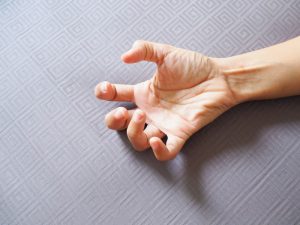Marijuana Possession for Seizure Disorders
 If you were arrested for or charged with marijuana possession but use it as a medication for a seizure disorder, contact Bruno Law Offices immediately. We might be able to defend you and get the charge dropped or reduced.
If you were arrested for or charged with marijuana possession but use it as a medication for a seizure disorder, contact Bruno Law Offices immediately. We might be able to defend you and get the charge dropped or reduced.
Marijuana possession is a serious crime in Illinois, despite recent laws allowing the possession of cannabis. Although marijuana is legal, certain restrictions can lead to an arrest and criminal charges.
Studies show cannabis can control seizures. Maybe you use marijuana to manage your seizure disorder. However, law enforcement arrested you for possession. An experienced criminal defense attorney from Bruno Law Offices can protect your rights and represent you.
Call Bruno Law Offices at (217) 328-6000 for an initial consultation to learn about your available legal options.
Marijuana Laws in Illinois
A new law legalized cannabis use in Illinois starting on January 1, 2020. However, restrictions prohibit marijuana possession under certain circumstances.
The Cannabis Regulation and Tax Act includes regulations for possessing, purchasing, and consuming cannabis, such as:
- State residents can’t buy more than 30 grams or one ounce of cannabis plant material.
- You must be 21 or older to purchase marijuana in Illinois. You can’t legally buy or possess marijuana if you are under 21.
- Patients with a valid medical marijuana card can’t grow more than five plants.
- Non-residents can purchase half the amount of marijuana Illinois residents are allowed to buy.
- Consuming or smoking marijuana in an open public space is prohibited.
- You must transport and deliver cannabis with a special transportation license.
- Delivering marijuana to a minor or possessing it on school property is illegal.
- Dispensaries and cultivators must have a valid license to sell marijuana legally.
You can face various criminal penalties if you violate any part of the Cannabis Regulation and Tax Act. Using marijuana for your seizure disorder is acceptable if it doesn’t violate state law.
How Marijuana Treats Seizure Disorders
 Marijuana can control seizures in some patients. Medical cannabis is from a whole cannabis plant or contains chemicals from the plant that are used for medical purposes. Cannabinoids affect certain parts of the body, including the brain. Tetrahydrocannabinol (THC) and cannabidiol (CBD) are the two major substances found in marijuana.
Marijuana can control seizures in some patients. Medical cannabis is from a whole cannabis plant or contains chemicals from the plant that are used for medical purposes. Cannabinoids affect certain parts of the body, including the brain. Tetrahydrocannabinol (THC) and cannabidiol (CBD) are the two major substances found in marijuana.
Many strains of marijuana contain THC. The high people feel when they smoke or consume cannabis is a psychoactive effect resulting from the THC binding to receptors in the brain. CBD doesn’t create a high.
In 2018, the U.S. Food and Drug Administration (FDA) approved the mainly purified plant-based cannabidiol oil called Epidiolex to treat seizures. It can effectively treat seizures in patients suffering from Lennox-Gastaut syndrome and Dravet syndrome. They’re rare forms of epilepsy that develop during childhood.
The FDA also approved Epidiolex to treat seizures caused by tuberous sclerosis complex in 2020. This is a rare genetic disease that causes the growth of benign tumors in the brain. The tumors can lead to seizures.
Researchers performed four randomized, double-blind, placebo-controlled clinical trials on 516 patients with Lennox-Gastaut and Dravet syndromes. Researchers found that Epidiolex taken with other antiseizure medications significantly reduced the number of seizures participants had compared to those in the placebo group.
Another clinical trial for people suffering from tuberous sclerosis complex found that Epidiolex reduced seizures by 48 percent. Only 24 percent of participants in the placebo group experienced fewer seizures.
The clinical trials helped get approval from the FDA. Although researchers aren’t entirely clear about how CBD treats seizures, they have several theories. They believe it can change the calcium level in the brain, which affects signals between cells, slows the rate of messages being sent to the brain, or reduces brain inflammation.
Sentencing for Possession of Marijuana in Illinois
The sentence you receive for marijuana possession depends on the amount of cannabis you have on you and additional factors. You can face other criminal charges if you commit another crime while possessing marijuana.
Sentencing for marijuana possession based on the amount of cannabis is below.
10 grams or less
- Civil law violation
- Between a $100 and $200 fine
More than 10 grams but no more than 30 grams
- Class B misdemeanor
- Up to 180 days in jail
- Up to a $1,500 fine
More than 30 grams but no more than 100 grams
- Class A misdemeanor
- No more than one year in jail
- A maximum of a $2,500 fine
More than 100 grams but no more than 500 grams
- Class 4 felony
- Between one and three years in prison
- No more than a $25,000 fine
More than 500 grams but no more than 2,000 grams
- Class 3 felony
- Two to five years in prison
- A maximum of a $25,000 fine
More than 2,000 grams but no more than 5,000 grams
- Class 2 felony
- Between three and seven years in prison
- No more than a $25,000 fine
More than 5,000 grams
- Class 1 felony
- Four to 15 years in prison
- Up to a $25,000 fine
Mitigating and aggravating factors can reduce or increase the sentence you must serve for marijuana possession.
Aggravating factors that extend a prison term include:
- The defendant received compensation for committing the crime
- The defendant utilized their professional position or reputation in the community to commit the crime or make it easier to commit
- The offender has a history of prior criminal activity or delinquency
- The crime occurred in a place of worship before, during, or immediately after worship services
- The duties of the defendant’s position or office required them to prevent the offense
- The conduct threatened or caused serious harm
- The offender held public office at the time of the crime, and the offense related to the office’s conduct
- The defendant’s felony conviction happened while released on bail or their own recognizance and awaiting trial for the prior felony
- The sentence is necessary to deter others from committing the same offense
Mitigating factors that minimize a sentence of imprisonment include:
- Substantial grounds exist to justify or excuse the defendant’s conduct because of the failure to establish a defense
- The defendant didn’t consider that their actions would threaten or seriously harm someone
- The defendant committed the crime under strong provocation
- The conduct didn’t cause or threaten serious harm to another person
- Someone other than the defendant facilitated or induced the criminal acts
- Circumstances unlikely to recur contributed to the defendant’s conduct
- The defendant is likely to follow the conditions of their probation
- The defendant doesn’t have a history of prior delinquency or criminal activity and led a law-abiding life for a significant period before committing the offense
- Imprisonment would endanger the defendant’s medical condition
Besides fines and imprisonment, penalties for marijuana possession might also include probation, community service, and completing a drug program. You can face a longer prison term if charged with related offenses, such as possession with the intent to sell or marijuana trafficking.
Contact Bruno Law Offices Today
Bruno Law Offices has defended clients in criminal cases since 1980. We believe everyone deserves legal representation for the charges they face. When you hire us, we will protect your rights and try to secure your freedom and future.
If you use medical marijuana to treat your seizure disorder and face a possession charge, call Bruno Law Offices at (217) 328-6000 for your initial consultation with one of our marijuana possession lawyers in Champaign.
Let our dedicated and aggressive legal team fight for you.
Related posts: